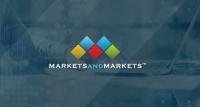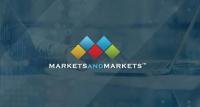(EMAILWIRE.COM, November 21, 2024 ) The global Lab Consumables Market is poised for significant growth, projected to rise from USD 14.41 billion in 2024 to USD 20.51 billion by 2029, driven by a CAGR of 7.3%. Key factors fueling this expansion include a heightened focus on drug discovery, increased R&D investmentsamounting to USD 244 billion in 2022and the rising trend of lab automation. The demand for advanced consumables, such as specialized microplates and cryogenic vials, is surging as patient-centered drug development and molecular diagnostics gain traction. However, challenges like high costs of advanced products and a lack of awareness and skills in emerging markets could hinder progress. North America currently dominates the market, while the Asia Pacific region is expected to experience the fastest growth. Prominent players, including Abbott and Merck, are actively innovating and expanding their offerings, aiming to meet the evolving needs of various end users, particularly in pharmaceuticals and diagnostics.
Download PDF Brochure: https://www.marketsandmarkets.com/pdfdownloadNew.asp?id=184125947
Browse in-depth TOC on “Lab Consumables Market”
178 – Tables
62 – Figures
283 – Pages
Moreover, in recent years, the market players are also focusing on providing sustainable and eco-friendly consumables due to its growing demand amongst various end users in the market. Also, there is an increasing demand for molecular diagnostics and growth potential in the emerging markets. All these factors are expected to drive provide growth opportunities for market players offering lab consumables market.
Lab consumables are gaining recognition due to increasing lab automation, technological advancements, regulatory requirements, consumer demand for eco-friendly and sustainable consumables. Lab automation significantly enhances the functionality and efficiency of lab consumables by streamlining repetitive tasks, increasing throughput, and reducing human error. For example:
-Automated Pipettors carry out automated liquid handling to automate the dispensing and mixing of liquids, handling multiple samples simultaneously.
-Devices like reagent dispensers and diluters work with consumables such as bottles, vials, and microplates to automatically dispense and dilute reagents or samples.
-Automated Sample Prep Stations automate tasks such as centrifugation, mixing, and homogenization. It is necessary to ensure that consumables are compatible with the automated processing steps to maintain sample integrity.
-Consumables like tubes and rotors are used along with automated centrifuges, performing high-throughput centrifugation tasks with minimal manual intervention.
-Robotic systems like robotic arms and conveyors work with consumables like multi-well plates, pipette tips, and reagent reservoirs to handle large volumes of samples and reagents for high-throughput screening assays.
-Automated plate readers are utilized for high-throughput screening, microplates, and filters to read and analyze results from high-throughput assays.
By incorporating lab automation technologies, labs can enhance the functionality of lab consumables, improving accuracy, efficiency, and scalability in laboratory operations. Automated systems reduce manual handling, minimize errors, and allow for high-throughput processing, all while ensuring consumables are used effectively and efficiently.
Based on the type, lab consumables market is segmented into microplates, pipettes and tips, tubes and racks, plates and seals, filters, filtration products, centrifuge tubes and accessories, containers and vials, bags and wraps, and other consumables. During the forecast period, containers and vials is expected to dominate the lab consumables market. The growth of the containers and vials segment will be driven by increase in industry adoption of lab consumable products.
Based on application, the lab consumables market is segmented into life science research, clinical diagnostics, industrial manufacturing, materials analysis, environmental testing, and forensic analysis. Throughout the forecast period, the industrial manufacturing segment is projected to claim the leading position in the market. The primary growth drivers include the rising demand for pharma, biopharma, and biotech products across key markets.
Based on end user, the lab consumables market is segmented into hospitals, surgical centers and clinics, diagnostic centers, academic & research institutes, pharmaceutical & biopharmaceutical companies, biotechnology companies, food & beverage companies, forensic laboratories, and other end users. During the forecast period, the pharmaceutical & biopharmaceutical companies’ sector is poised to command the most substantial market share in the lab consumables market. This dominance is fueled by the increasing adoption of analytical techniques.
The lab consumables market covers five key geographiesNorth America, Europe, Asia Pacific, Latin America, and the Middle East. In 2024, the Asia-Pacific region is anticipated to present noteworthy growth prospects for lab consumables. This expansion is credited to the rising healthcare spending, the growth of the pharma and biotech sectors in India and China, and annual rise in geriatric population in several Asia Pacific countries.
Request Sample Pages: https://www.marketsandmarkets.com/requestsampleNew.asp?id=184125947
The lab consumables market exhibits moderate competitiveness, featuring both established companies and emerging competitors for the same market share. As of 2023, the key player operating in the global lab consumables market are Merck KGaA (Germany), Danaher Corporation (US), Thermo Fisher Scientific, Inc. (US), Eppendorf SE (Germany), Corning Incorporated (US), Greiner Bio-One International GmbH (Austria), Abbott Laboratories (US), Bio-Rad Laboratories Inc. (US), Agilent Technologies Inc. (US), Qiagen (Germany), Waters Corporation (US), Bruker Corporation (US) and Sysmex Corporation (Japan).
In the past four years, top players in this market have employed key strategies such as product and service launches, making agreements, and undertaking expansions. In 2023, a major share of the lab consumables market was held by Merck KGaA (Germany), Danaher Corporation (US), Thermo Fisher Scientific, Inc. (US), Corning Incorporated (US) and Greiner Bio-One International GmbH (Austria).
MERCK KGAA (GERMANY):
Merck is one of the leading technology and manufacturing product-based companies. The company develops and manufactures lab consumable solutions. The company also offers instruments, reagents, and maintenance services. Merck has a strong global presence in major markets such as the Asia Pacific, Europe, North America, Latin America, and Africa. The company focuses on strengthening its market share and expanding its revenue base in the lab consumables segment by expanding its facility centers globally. Merck is also involved in investments to enhance its R&D capabilities and increase public awareness of its lab consumables products across the world’s major markets.
DANAHER CORPORATION (US):
Danaher Corporation holds a significant share in the global lab consumables market. The company offers an extensive range of lab consumables for diagnostics. The company focuses primarily on acquisitions and partnerships to maintain its market position and ensure future growth. Danaher also emphasizes R&D to provide innovative products and maintain its competitive position. The company’s efforts to strengthen its product portfolio, expand its geographic reach, and increase brand visibility are expected to drive its growth in the lab consumables market.
THERMO FISHER SCIENTIFIC INC. (US):
Thermo Fisher is a global innovation company focusing on innovation and product launches in lab consumables to provide advanced solutions. The company is a leading life science industry player with a strong market presence in over 80 countries. The company’s Fisher Scientific brand offers a broad range of lab consumables. Thermo Fisher primarily pursues product innovation to sustain its position in the global lab consumables market. The company mainly depends on the US for revenue generation; in FY 2023, around 47.6% of the total revenue came from the US.







